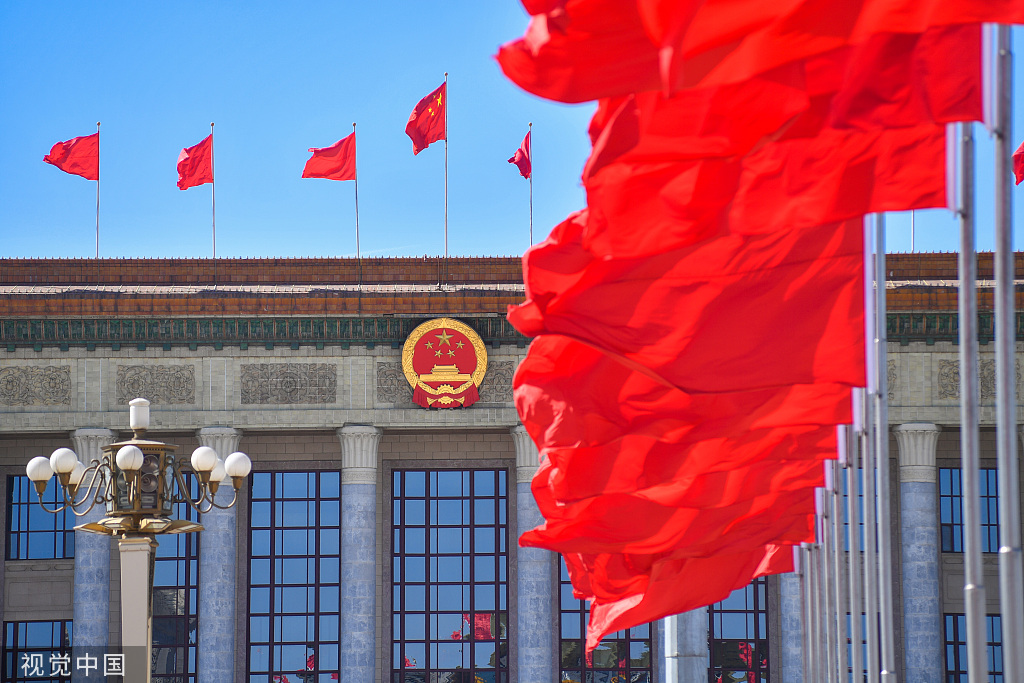Why understanding Chinese foreign policy matters
- By George N. Tzogopoulos
 0 Comment(s)
0 Comment(s) Print
Print E-mail China.org.cn, March 16, 2021
E-mail China.org.cn, March 16, 2021

Chinese foreign policy is grounded in continuity. China is predictable in foreign affairs and acts according to its standard plan that is aligned with its domestic development. External challenges, however, pose dangers that require careful management. This became evident over the last four years. Although Sino-American relations had previously evolved without serious problems, they entered a phase of high tensions at the beginning of the Donald Trump administration as he hosted his Chinese counterpart in Mar-a-Lago in April 2017. The four high-level dialogue mechanisms initiated then and the visit of President Trump to Beijing in November of that year, did not prevent him from launching a trade war against China.
The phase one deal of January 2020 temporarily paused frictions but the outbreak of the COVID-19 pandemic and the start of the American election period brought the bilateral relationship into dangerous waters. Technology has been a new area of disagreement. The situation became so complicated that Henry Kissinger compared it with the uncertainty characterizing global politics prior to World War I.
It is in the interest of China and the U.S. to keep tensions low and manage the bilateral relationship in a manner that can limit competition to a low-risk level. It will soon become apparent if President Joe Biden can change course in his country's approach vis-à-vis China. His "Interim National Security Guidance" demonstrates an inclination towards both cooperation and confrontation. But the recent announcement of the high-level strategic dialogue between Chinese and American officials which is scheduled to be held in Alaska this week could be an opportunity for the two sides to engage with each other.
The 2021 "two sessions" have offered insights on how China interprets developments. As Chinese State Councilor and Foreign Minister Wang Yi reiterated in his press conference, although "there is no room for compromise or concession from the Chinese government" on core interests, the two sides "should advocate healthy competition on a fair and just basis." Premier Li Keqiang conveyed a similar message. The forthcoming meeting of top diplomats will perhaps shed some light into the future direction of Sino-American relations.
China is well-engaged with the world in a globalized economic environment. This renders it hard for the U.S. to apply Cold War tactics or at least to be confident that these tactics could provide the desired results. Upholding the principle of multilateralism, China has signed agreements underlining not only its importance for other countries but also the importance of interconnectedness across the globe. The RCEP and the EU investment deal constitute examples.
Against this backdrop, Chinese foreign policy will focus on managing its relationship with the U.S. without ignoring other priorities that foster international collaboration. The Belt and Road Initiative is a critical parameter of the 14th Five-Year Plan (2021-2025). In the coming years, China is expected to further advance this project and place more emphasis on its quality such as its proposed green character which can be understood from China's extensive reference to protecting the eco-system during this year's "two sessions". In his press conference, Wang Yi also talked about the interest of China in advancing ties with several countries in different regions such as in Africa and Latin America.
Stability matters for China. Stability, as a goal, transcends the national boundaries of the country. The Chinese administration exerts a foreign policy that seeks to shape outcomes in a manner that serve its interests and creates a tranquil climate facilitating progress at the diplomatic and economic level. In fighting the pandemic, for instance, China provided various countries with medical equipment last year and is supplying them with vaccines this year.
The more China grows, the more its significance in the global arena rises. World challenges such as climate change and terrorism have already acquired a transnational character and therefore are the responsibility of all countries. The analysis of Chinese foreign policy is a necessary prerequisite to better understand international relations.
George N. Tzogopoulos is a columnist with China.org.cn. For more information please visit:
http://www.china.org.cn/opinion/GeorgeNTzogopoulos.htm
Opinion articles reflect the views of their authors, not necessarily those of China.org.cn.
If you would like to contribute, please contact us at opinion@china.org.cn.






Go to Forum >>0 Comment(s)